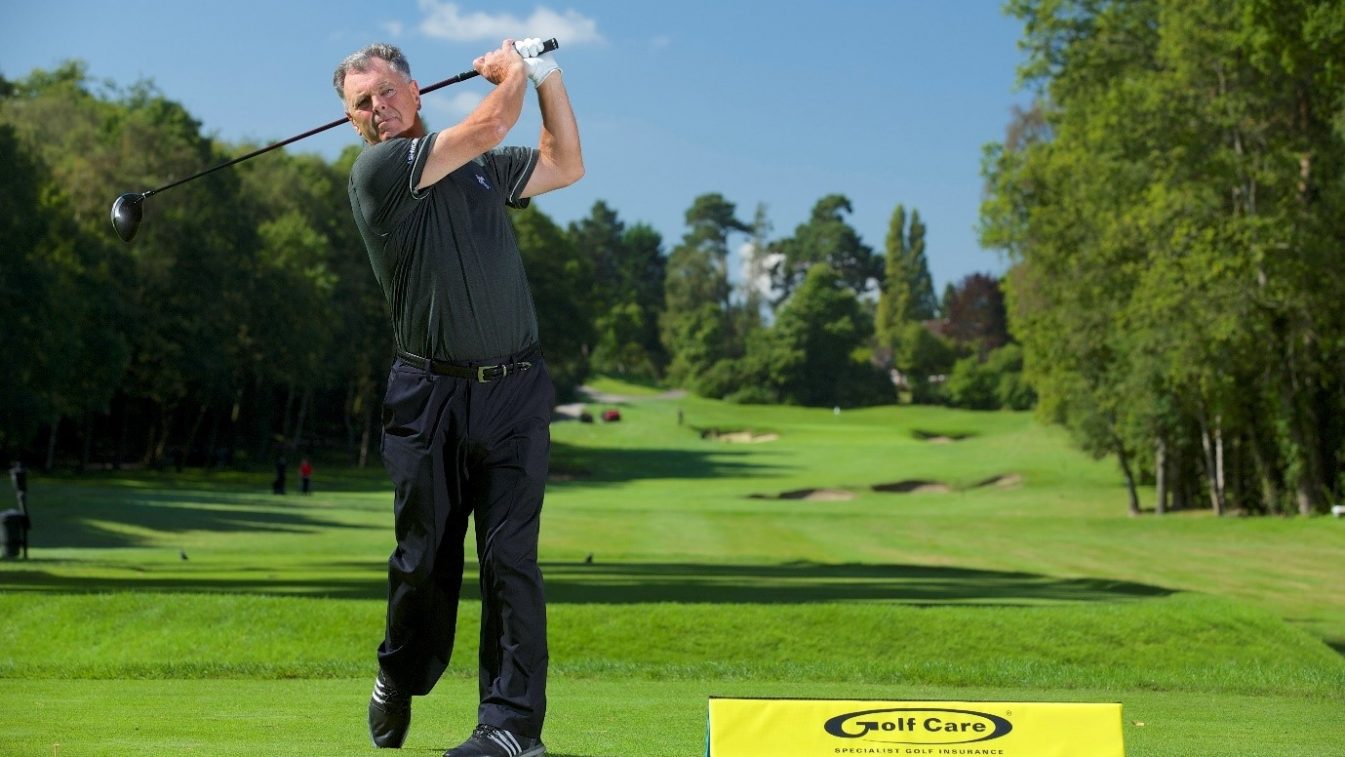
INTERVIEWER
Your first experience of captaincy was the infamous “War on the Shore” at Kiawah Island in 1991. What do you remember of the antics from the Americans and how did you try and keep your players focused amidst all the furore and drama?
BERNARD GALLACHER
My recollections of this are quite vivid. I succeeded Tony, who had broken the American stranglehold on the Ryder Cup and had a very strong side. The Americans were desperate to win it back as they hadn’t won it since 1983. When we read that The American press in Charleston said, ‘Let the War on the Shore begin’, we knew we were in for a tough time.
It was the first time I remember the crowd getting so involved to such a degree. They booed when we holed putts and cheered when we missed. The whole atmosphere was very unfriendly and it got very political.
During the opening ceremony, President Bush appeared on television saying he was hoping for an American victory, which is something that you just don’t say at a Ryder Cup. Vice President Dan Quayle also came to the matches. It was undignified in many ways. We tried to maintain our composure in spite of all this and deal with it as best we could.
There was also the big dispute between Seve and Olazabal and Paul Azinger and Chip Beck, because the Americans used a ball they shouldn’t have used. The Spaniards got wind of this and brought it to my attention. On the 9th, the Americans accepted that two holes beforehand, they had changed the ball inadvertently, but because we hadn’t claimed the hole soon enough, they got away with it. My view is if you didn’t know the rule at the 7th, why should you know it at the 9th?
Then we had the issue with the radio station called Wake The Enemy. A disc jockey at this radio station had been phoning us at 3 am and waking us up. Eventually, we found out a maid who was servicing the player’s rooms had sold the phone numbers to the station! You can’t make this stuff up!
Dave Stockton pulling Steve Pate out of the singles without telling me is another vivid memory. We all suspected it was because Steve Pate was due to play Seve in the singles, and I accept he wasn’t 100% fit after the car accident he’d had before the tournament.
But in my opinion, that was all a bit overblown – he was fit enough to play. It was unprecedented for the captain of the player who’s injured not to have at least the courtesy to tell the other captain that this is going to happen.
That’s all part of the envelope rule – I had Dave Gilford in the envelope, and if I’d have been consulted, I could have told Dave Gilford that he wouldn’t be playing against Steve Pete. Dave was understandably very upset and I felt sorry for him. I think the Americans turned us over there.
INTERVIEWER
How would you describe your relationship with the Americans in the immediate aftermath of this infamous tournament, particularly their captain Dave Stockton?
BERNARD GALLACHER
Mine and Dave’s relationship before the tournament was OK, but afterwards it was poor and I have made no effort to communicate with him since Kiawah. He sent me a Christmas Card featuring a picture of himself and the winning US team, which I threw in the fire.
A lot of the American players were upset about their team’s antics that week. A couple of them even wrote to me to say they were sorry and that the tournament hadn’t been played in the manner they’d expect. I don’t want to reveal who those players were out of respect, but they know who they are.
Lanny Wadkins came over to our table at the gala dinner to say that he wasn’t happy with a number of things and that he hoped the PGA of America would apologise.
INTERVIEWER
Fast forward to 1995 and Europe finally got one over on the Americans, emerging victorious at Oak Hill. How does the 1995 victory compare to others you’ve had in your career?
BERNARD GALLACHER
Winning at Oak Hill was a personal relief because we had come so close in the previous two Ryder Cups only to lose over a final couple of holes on the last day. As a professional golfer, nothing compares to your individual success, but winning as a captain as I did at Oak Hill in 1995 is pretty close.
People make a lot about the role of the captain, but it’s all about playing in the Ryder Cup and when you’re a captain it means your days are numbered, so in some ways it’s a bittersweet feeling. Having lost at Kiawah Island and The Belfry, I didn’t really want to be captain. In those days, it was customary to captain your team once at home and once away, so when they invited me to be captain again I wasn’t too keen.
The week panned out in pretty much the same way other tournaments had. We were playing well but we were on the back foot, and then on the Saturday afternoon it looked like we would square the match going into the singles.
Then suddenly, Corey Pavin chips in and wins a hole that he looked like losing, and we’re two points behind the Americans going into Sunday’s singles matches away from home – it didn’t look great at that point.
When the draw came out, I felt there were some matches which really worked in our favour. Lo and behold, at one point we were leading in almost every match! It was always going to come down to the wire and ultimately it was decided by two decisive matches.
Nick Faldo was one down against Curtis Strange with three to play and he managed to beat him on the last green, which actually meant we couldn’t lose. However, because we didn’t hold the Ryder Cup, at that point, we weren’t bringing it back with us. Philip Walton was the unsung hero. He was playing Jay Haas and hung on to win the match 1 up.
It was only our second victory on American soil, but we never thought about that for one minute. You just think of the present and the future. I think this is the big difference between professional golf and amateur golf, in that you never really think of stats like that at the highest level.
INTERVIEWER
How much influence did you feel you could have on the players, both on and off the course?
BERNARD GALLACHER
I think the captain’s job is pretty overrated. There’s a big social aspect, which is making the players feel comfortable, overseeing team talks, having a nice week and bonding in the team room. When we practise, we practise together. We’d put some of the rookies with the experienced players so that they could help them through it.
I also insisted on foursome practice being proper foursome practice so that you get used to the pace of play. You can go three or four or so holes without having an important putt but you need to be ready for it if the situation arises. I think this is the advantage Europeans have had over the few years and the advantage the Americans had at Hazeltine in 2016.
INTERVIEWER
Did you have to face any frustration about your captaincy from your team members?
BERNARD GALLACHER
I gave a team talk at the start of the week, and I made it clear to them that they would all play. They’d all played their way into the team, they deserved to play four singles and the match would be decided on the singles.
If a player hadn’t played the first day or in the morning of the second day, he knew he’d play in the afternoon on Saturday, so it kept everybody on their toes. Also, I said to the players that they didn’t need to support us as we had plenty of support out there. If they weren’t playing, they could get on the course, play a few holes and find how the greens are putting. That has got more value than walking around with the team.
In the early 70’s, we were criticised sometimes because players who weren’t playing weren’t going out supporting the team. This was a very unfair criticism because us captains wanted the players who weren’t involved playing a few holes, so they felt good in the afternoon.
I also instructed my players to come and tell me if any player doesn’t want to play with another player for whatever reason because you can confide in me. If they didn’t tell me they had to allow me to put players together and make my own decision on that.
Other times, you would have to make big decisions on pairing players together. For instance, Nick Faldo wanted to play with Colin Montgomerie because they both play a very similar straight game, but one time I did have to change them as I felt that I could get more points by splitting them up. Actually, it turned out I didn’t, so I made a mistake there at Oak Hill.
I said ‘I want to split you guys because instead of getting one point I think I can get two points’. I put Nick Faldo with Bernard Langher and it was a great match. I put Colin Montgomerie with Sam Torrance and they played great, but they lost to Davis Love and Fred Couples. It backfired on me a lot, even though in theory it should’ve worked. That’s why you have to keep a very open mind about things.
INTERVIEWER
How would you evaluate your success as captain of Europe? If you could go back is there anything you would change?
BERNARD GALLACHER
The main thing I would change would probably be to enlist the help of a press officer. It took me two Ryder Cups to find out that I needed a press officer – Tony didn’t have one so I just carried on where he’d left off. However, after the second Ryder Cup, I knew I needed one. As captain, you’re put on the spot a lot and there’s more and more media attention in every tournament.
In Tony’s day, he knew the major journalists and had a good relationship with them, whereas today there are a lot of journalists who attach themselves to the Ryder Cup but aren’t interested in back page stories. They want something for the front page, rather than a story on golf.
I got the European Tour press officer Mitchell Platts, who had previously been a journalist at The Times, to come with me to Oak Hill in 1995. Before I went to each press conference, I asked Mitchell what he thought would be the theme of the conversation. What’s happened on and off the course that journalists will pick up on? By chatting this through with Mitchell, I was ready to give some of the answers – it made my job of facing the journalists so much easier.
Specialist golf insurance through Golf Care
Before heading out to the course, you may want to think about protecting yourself and your equipment with specialist golf insurance.
With Golf Care, policies include Equipment Cover up to £7,500 and Public Liability up to £10m, so you can play with peace of mind.
Get an instant online quote today.
Get a quick quote for Golf Insurance
Get A Quote